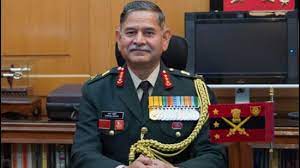The United States (US) and China have agreed to resume military-to-military communications between their armed forces as the two leaders – US President Joe Biden and Chinese President Xi Jinping – met for hours on the sidelines of the Asia-Pacific Economic Cooperation summit in San Francisco.
Further, he two leaders held a candid and constructive discussion on a range of bilateral and global issues including areas of potential cooperation and exchanged views on areas of difference.
President Biden emphasized that the United States and China are in competition, noting that the United States would continue to invest in the sources of American strength at home and align with allies and partners around the world.
He stressed that the United States would always stand up for its interests, its values, and its allies and partners.
He reiterated that the world expects the United States and China to manage competition responsibly to prevent it from veering into conflict, confrontation, or a new Cold War.
The two leaders made progress on a number of key issues.
Also, they welcomed the resumption of bilateral cooperation to combat global illicit drug manufacturing and trafficking, including synthetic drugs like fentanyl, and establishment of a working group for ongoing communication and law enforcement coordination on counternarcotics issues.
Also, the two leaders welcomed the resumption of high-level military-to-military communication, as well as the U.S.-China Defense Policy Coordination Talks and the U.S.-China Military Maritime Consultative Agreement meetings.
Both sides are also resuming telephone conversations between theater commanders.
The leaders affirmed the need to address the risks of advanced AI systems and improve AI safety through U.S.-China government talks.
The two leaders exchanged views on key regional and global challenges.
Further, the two leaders reiterated the importance of ties between the people of the United States and the People’s Republic of China, and committed to work towards a significant further increase in scheduled passenger flights early next year, in parallel with actions to restore full implementation of the U.S.-China air transportation agreement, to support exchanges between the two countries.
The two leaders also encouraged the expansion of educational, student, youth, cultural, sports, and business exchanges.
Also, the two leaders underscored the importance of working together to accelerate efforts to tackle the climate crisis in this critical decade.
They welcomed recent positive discussions between their respective special envoys for climate, including on national actions to reduce emissions in the 2020s, on common approaches toward a successful COP 28, and on operationalizing the Working Group on Enhancing Climate Action in the 2020s to accelerate concrete climate actions.
Building on the November 2022 meeting in Bali where they discussed the development of principles related to U.S. – China relations, the two leaders acknowledged the efforts of their respective teams to explore best practices for the relationship.
They stressed the importance of responsibly managing competitive aspects of the relationship, preventing conflict, maintaining open lines of communication, cooperating on areas of shared interest, upholding the UN Charter, and all countries treating each other with respect and finding a way to live alongside each other peacefully.
The leaders welcomed continued discussions in this regard.
Moreover, the two leaders agreed that their teams will follow-up on their discussions in San Francisco with continued high-level diplomacy and interactions, including visits in both directions and ongoing working-level consultations in key areas, including on commercial, economic, financial, Asia-Pacific, arms control and nonproliferation, maritime, export control enforcement, policy-planning, agriculture, and disability issues.
Source: https://www.whitehouse.gov/





